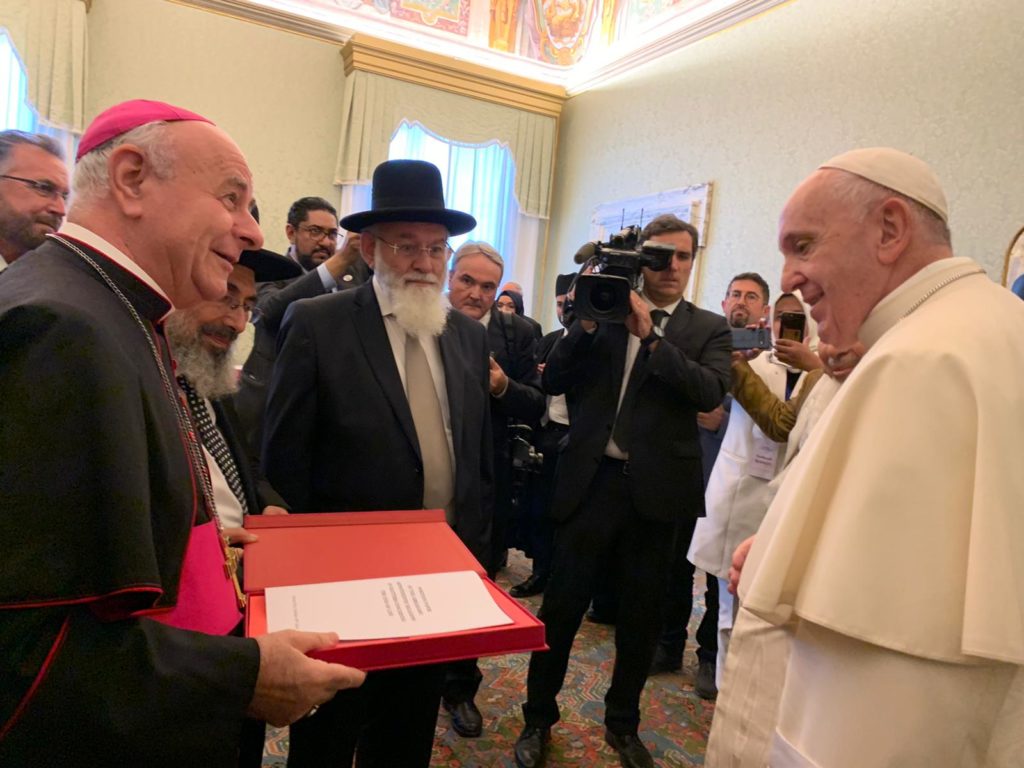At a meeting at the Vatican on 28 October, representatives of the three Abrahamic religions, Christianity, Islam and Judaism, presented Pope Francis a position paper on the end of life and euthanasia.
The document takes issue with Belgium and other countries where euthanasia is allowed under certain conditions.
The initiative to the document was taken by Israeli Rabbi Prof. Avraham Steinberg, who represents the Chief Rabbinate in an inter-faith committee with representatives of other religions. He is a senior pediatric neurologist at Shaare Zedek Medical Center in Jerusalem and an associate professor of medical ethics.
The paper states that moral, religious, social and legal aspects of the treatment of the dying patient are among the most difficult and widely discussed topics in modern medicine. The issues concerning end-of-life decisions present difficult dilemmas.
However, the three Abrahamic monotheistic religions share common goals and are in complete agreement in their approach to end-of-life situations.
Accordingly, they affirm that euthanasia and physician-assisted suicide are inherently and consequentially morally and religiously wrong and should be forbidden with no exceptions.
That said, the paper commends laws and policies that protect the rights and the dignity of the dying patient, in order to avoid euthanasia and promote palliative care.
A dying patient is defined as a person suffering from a fatal, incurable and irreversible disease, at a stage when death will in all probability occur within the space of a few months as a result of the disease or its directly related complications, despite the best diagnostic and therapeutic efforts.
In that situation, human interventions by medical treatments and technologies are only justified in terms of the help that they can provide. Therefore, their use requires responsible judgment about when life-sustaining and life-prolonging treatments truly support the goals of human life, and when they have reached their limits.
The medical team and society at large should respect an authentically independence wish of a dying patient to prolong or preserve his/her life even for an additional short period of time by clinically appropriated medical measures.
This includes the continuation of respiratory support, artificial nutrition and hydration, chemotherapy or radiotherapy, antibiotics, pressors and the like.
When death is imminent despite the means used, it is justified to make the decision to withhold certain forms of medical treatments that would only prolong a precarious life of suffering, according to the position paper.
The paper “opposes any form of euthanasia – that is the direct, deliberate and intentional act of taking life – as well as physician assisted suicide – that is the direct, deliberate and intentional support of committing suicide – because they fundamentally contradict the inalienable value of human life, and therefore are inherently and consequentially morally and religiously wrong".
As reported by The Brussels Times, Gwendolyn Rutten, leader of the Flemish liberal party (Open Vld), said in an interview, that “We must be able to choose the right to die not only when we are suffering in an intolerable way but also when our lives are fulfilled and we request to do it explicitly, freely, independently and firmly.”
The Brussels Times

